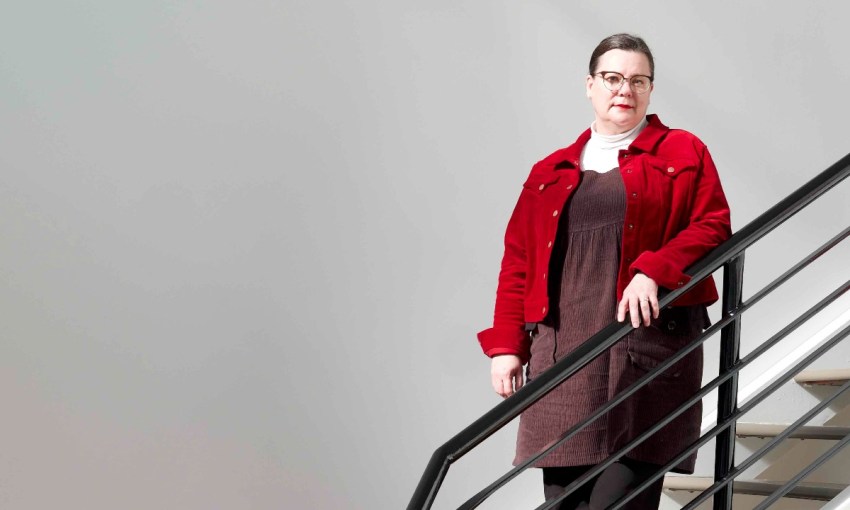Music SA chief executive officer Christine Schloithe has released the organisation's strategic plan to "shape the future of South Australian music".
A new vision for music in South Australia
Music SA released its 2023-35 Strategic Plan this week, its first since Christine Schloithe joined as CEO in May 2022 .
The not-for-profit has identified five areas it will focus on to “shape the future of South Australian music”: advocacy, skills development, First Nations engagement, regional engagement and development, and sustainability.
While Christine joined Music SA a year ago, she says the organisation’s new strategic direction has come from years of internal discussions about what the local music industry needs from its peak body.
“It happened before COVID, to be fair, when the org really looked at whether its core business was still in the registered training field,” Christine says.
“It made quite the big decision that it was going to withdraw from registered training being its core business, and taking on more of that industry development role.”
During COVID, it became apparent the South Australian music industry needed an advocate, but Christine says “Music SA didn’t fully step into the advocacy space”.
“I think the perception might’ve been in the past that if you are an organisation that is funded by government you can’t be critical of government,” she says.
“I absolutely know that that can be done; it’s about the maturity of the conversation and the integrity of the conversation.”
Christine has worked in the creative industries for much of her professional career, always stepping “in and out of the music industry,” she says. This includes lighting live music gigs on the side while studying technical theatre production at NIDA in the ’90s, and being Adelaide Guitar Festival’s inaugural producer (when it was Adelaide International Guitar Festival).
Just before joining Music SA, Christine worked in the public sector and was involved in the Marshall Government’s COVID response for the South Australian arts sector. She saw a five-year arts plan turn into “$10 million of emergency money”.
“Government just saw straight away that the creative and cultural industries were going to be immediately impacted,” she says.
“It was quite amazing to be in that situation and to watch a government try and respond to what was happening.”
Christine wasn’t sure initially about taking the Music SA CEO role, but, after speaking to some of the board members and stakeholders, she says she “got a sense of was a really genuine conversation that was happening at a local and a state and a national level with the music industry, and that has never happened before”.
She says she has learned from her time working “on the policy side of things”, she knows public sector workers can “have vastly different assumptions about what might be happening on the ground” in any given industry.
“You actually need a level of honesty from someone like a peak body to have that conversation with,” she says.
Christine has begun this advocacy to government on behalf of the local music industry, particularly since the recent State Budget was delivered.
She recently told InDaily she perceived a reduction in funding from the State Government to the live music industry, which she labelled “really disappointing”.
“I think the government would acknowledge how badly the industry was impacted by COVID,” she told InDaily.
She later described a local live music ecosystem as still recovering.
“Audiences are not coming out in the same numbers, we’ve got quite a depressed touring market in SA,” she said.
In conversation with CityMag (before the state budget was delivered), Christine says there has never been a time of greater opportunity for South Australia’s music industry.
“I’ve never started a role with an organisation where the potential for doors opening in sequence to new possibility has been as great as what it has been here,” she says.
“And I feel like since I’ve started, we’ve gone towards a door and it has kind of just opened. And I think that’s the COVID factor – it just shook up all of the old framework and it created new possibility, and everyone is rewriting the landscape that we work in.
“I do feel like we’ve got every single opportunity lined up, and we can’t waste it, and we need to really make the most of it. Because I do feel like for music in South Australia, this can be a really defining moment.”
The first move by the music body was to replace the annual winter Umbrella festival with Good Music Month, a state-wide, open-access live music event in November.
Schloithe says with events like Illuminate Adelaide enlivening the city in July, Umbrella’s mid-winter timing became less necessary.
“The original premise for Umbrella Festival was… to drive better activity for bricks-and-mortar venues in the CBD during July, which was the slowest trading month,” Christine says.
“In that lens, it achieved a really great outcome, and some really excellent outcomes for the city… [but] last July, if you look at the visitor statistics – off the charts good – the argument about bricks-and-mortar venues needing activity during the quietest month of the year didn’t have the same playbook as it did have previously.”
Scouted, the South Australian music showcase event which capped off Umbrella Festival, will remain in its early August timeslot to stay aligned with the annual Indie-Con convention of independent Australian record labels hosted in Adelaide.




